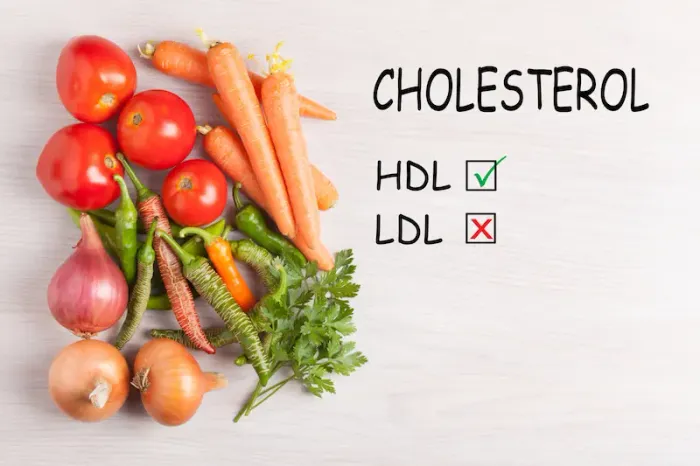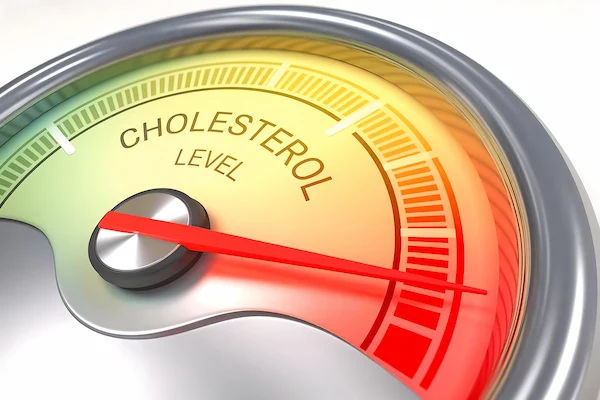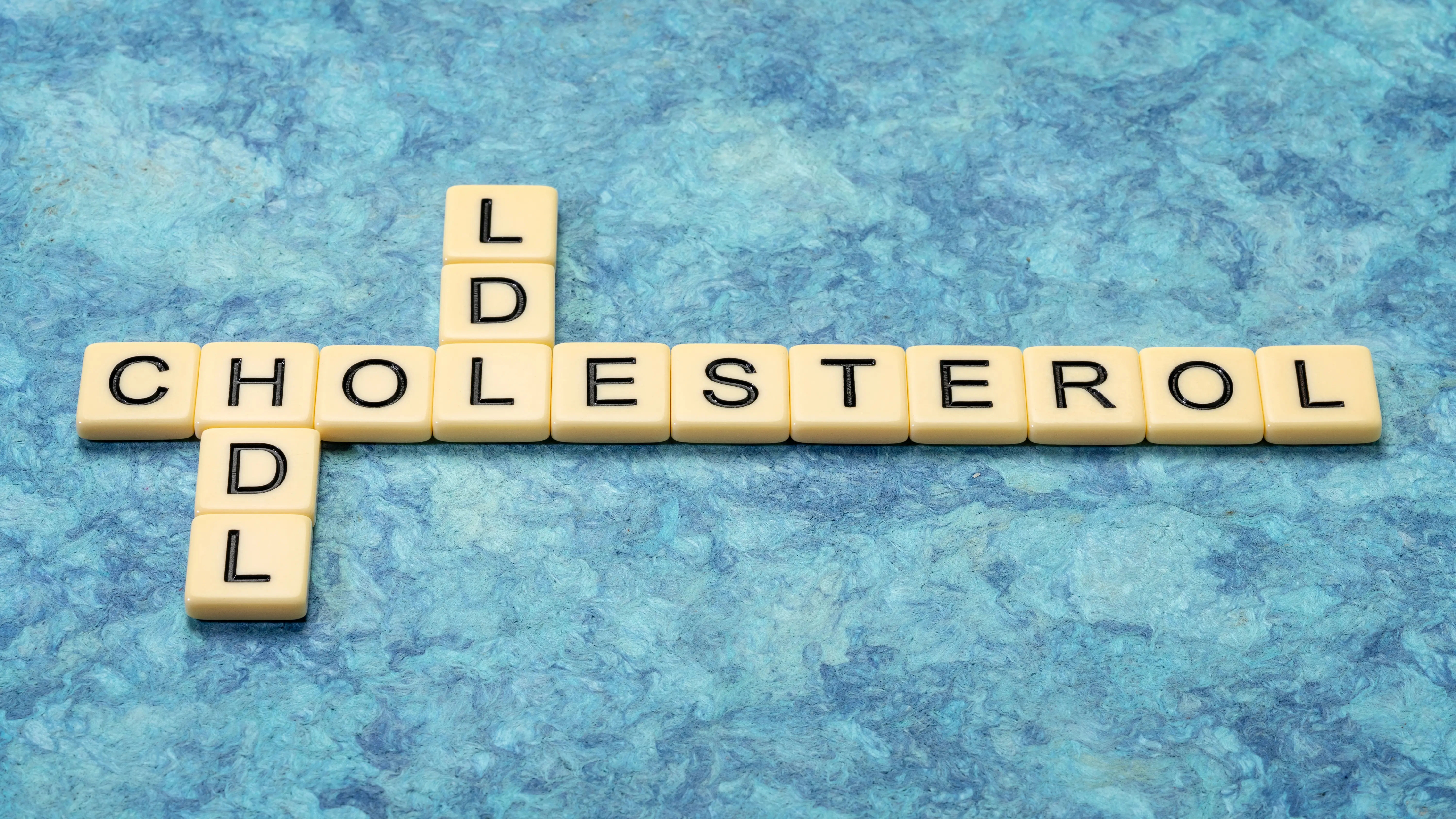Your Drug-Free Guide to Lowering LDL Cholesterol Naturally
Know about the lowering of cholesterol in drug-free manner, know the food to avoid and eat, impact of weight and lifestyle. Learn about the influence of exercise.

Written by Dr. J T Hema Pratima
Reviewed by Dr. D Bhanu Prakash MBBS, AFIH, Advanced certificate in critical care medicine, Fellowship in critical care medicine
Last updated on 13th Jan, 2026

Introduction
Are you among the millions who have been told their LDL cholesterol is too high? The immediate thought often jumps to prescription medication. But what if you could take significant control of your heart health through powerful, evidence-based, drug-free alternatives? This comprehensive guide is designed to empower you with the knowledge and actionable steps to lower your "bad" LDL cholesterol naturally. By understanding the science behind cholesterol management, you can make informed choices that not only improve your numbers but also enhance your overall well-being. Remember, while these strategies are highly effective, they work best under the guidance of a healthcare professional. If your cholesterol levels are a concern, consulting a doctor online with Apollo24|7 is a great first step to create a personalised plan.
Understanding LDL Cholesterol: The "Bad" Guy Explained
Cholesterol itself isn't evil; your body needs it to build cells and make vitamins and hormones. It's transported through your bloodstream by carriers called lipoproteins. Low-density lipoprotein (LDL) is often labelled "bad" cholesterol because when levels are too high, it can build up in the walls of your arteries. This buildup, known as plaque, narrows the arteries and makes them less flexible, a condition called atherosclerosis. Think of LDL as tiny delivery trucks that can sometimes drop their cargo in the wrong place, causing traffic jams in your blood vessels.
Consult a Top General Practitioner for Personalised Advice
Why is High LDL a Concern?
The primary risk of uncontrolled high LDL cholesterol is cardiovascular disease. The plaque buildup can rupture, leading to a blood clot. If a clot blocks an artery feeding the heart, it causes a heart attack. If it blocks an artery feeding the brain, it causes a stroke. Managing your LDL levels is one of the most crucial steps you can take for long-term cardiovascular health.
The First Line of Defense: A Heart-Healthy Diet
Diet is your most powerful tool in the fight against high LDL. It's not about deprivation; it's about strategic substitution and addition.
Power Up with Soluble Fibre
Soluble fibre is a superstar for cholesterol management. It dissolves in water to form a gel-like substance in your gut. This gel binds to cholesterol particles, preventing them from being absorbed into your bloodstream and helping your body excrete them. Aim for 10-25 grams of soluble fibre daily.
Top Soluble Fibre Sources: Oats, Barley, and Legumes
Starting your day with a bowl of oatmeal is a classic for a reason. Oats are rich in beta-glucan, a type of soluble fibre highly effective at lowering LDL. Barley is another excellent grain with similar benefits. Legumes such as kidney beans, lentils, and chickpeas are packed with fibre and make a hearty, cholesterol-friendly base for meals.
The Magic of Fruits and Vegetables
Apples, citrus fruits, strawberries, Brussels sprouts, and avocados are all great sources of soluble fibre. They also provide antioxidants that can prevent LDL cholesterol from oxidising, a key step in the formation of arterial plaque.
Embrace Healthy Fats
The goal is not to eliminate fat but to choose the right kinds. Replacing unhealthy fats with healthy ones can significantly reduce LDL levels.
Unsaturated Fats: Your Heart's Best Friend
These are found in plant-based oils, nuts, seeds, and avocados. For example, using olive oil instead of butter for cooking, snacking on a handful of almonds or walnuts, and adding avocado to your salad are simple swaps that benefit your heart.
The Omega-3 Advantage: Fatty Fish and Flaxseeds
Omega-3 fatty acids don't lower LDL directly but they do help by raising HDL ("good") cholesterol and reducing triglycerides. Aim to eat fatty fish like salmon, mackerel, or sardines at least twice a week. For vegetarians, ground flaxseeds and walnuts are good plant-based sources.
Foods to Limit or Avoid
To make room for the good, you need to cut back on the bad.
The Double Whammy: Saturated and Trans Fats
Saturated fats (found in red meat, full-fat dairy, and butter) and artificial trans fats (found in many fried foods and baked goods) are the primary dietary drivers of high LDL cholesterol. Read labels carefully and limit these ingredients as much as possible.
Move Your Body: The Role of Exercise in Cholesterol Control
Physical activity is a potent drug-free alternative that works in two key ways: it raises your HDL ("good") cholesterol, which helps remove LDL from your arteries, and it helps you maintain a healthy weight.
Aerobic Exercise: The Cholesterol Burner
Activities that get your heart rate up, such as brisk walking, jogging, cycling, and swimming, are incredibly effective. Aim for at least 150 minutes of moderate-intensity aerobic exercise or 75 minutes of vigorous-intensity exercise per week. Consistency is key—a daily 30-minute walk can make a substantial difference.
Strength Training: A Metabolic Booster
While aerobic exercise is the star for direct cholesterol impact, strength training (using weights, resistance bands, or bodyweight) helps build muscle mass. More muscle improves your metabolism, making it easier to maintain a healthy weight, which indirectly supports healthy cholesterol levels.
The Impact of Weight and Lifestyle Factors
The impact includes:
Reaching a Healthy Weight
Carrying excess weight, particularly around the abdomen, can contribute to higher LDL and lower HDL levels. Even a modest weight loss of 5-10% of your body weight can significantly improve your cholesterol profile. The dietary and exercise strategies outlined above are the cornerstone of achieving this.
Quit Smoking: A Direct Boost to Your HDL
Smoking damages the walls of your blood vessels, making them more susceptible to plaque buildup. It also lowers your HDL cholesterol. Quitting smoking can improve your HDL level rapidly, and if you need support to quit, consulting a doctor with Apollo24|7 can provide you with a structured plan.
Moderate Your Alcohol Intake
While moderate alcohol consumption (particularly red wine) has been linked to higher HDL levels, the benefits are not strong enough to recommend starting to drink. If you do drink, do so in moderation—up to one drink per day for women and two for men. Excessive drinking harms the heart and liver.
Natural Supplements and Add-ons (Proceed with Caution)
Always speak with your doctor before starting any supplements, as they can interact with medications.
Plant Sterols and Stanols
These are plant-based compounds that have a structure similar to cholesterol. They compete with dietary cholesterol for absorption in the gut, effectively blocking it. They are found in fortified foods like certain margarines, orange juices, and yoghurts.
Psyllium Husk Supplementation
Psyllium is a form of soluble fibre, often sold as a supplement (like Metamucil). Adding a dose to your daily routine can provide a concentrated boost of cholesterol-lowering fibre.
Conclusion
Taking charge of your cholesterol levels through drug-free alternatives is not only possible but profoundly empowering. This journey revolves around foundational pillars: nourishing your body with a heart-healthy diet rich in fibre and good fats, committing to regular physical activity, and adopting a balanced lifestyle. These changes work synergistically to lower LDL, raise HDL, and reduce your overall risk of heart disease. Remember, this is a marathon, not a sprint. Start with one or two changes, such as adding a daily bowl of oatmeal or going for a brisk walk, and gradually build from there. If your condition does not improve after trying these methods, or if you have very high cholesterol, booking a physical visit to a doctor with Apollo24|7 can help you determine if additional intervention is needed.
Consult a Top General Practitioner for Personalised Advice
Consult a Top General Practitioner for Personalised Advice

Dr. Mainak Baksi
General Practitioner
13 Years • MBBS , MD (MPH)
Howrah
Mainak Baksi Clinic, Howrah
(50+ Patients)

Dr Suseela
General Physician
5 Years • MBBS
Bengaluru
Apollo Medical Center, Marathahalli, Bengaluru

Dr. J T Hema Pratima
General Practitioner
9 Years • MBBS, Fellowship in Diabetes Mellitus
Chennai
Apollo 24|7 Clinic - Tamilnadu, Chennai
(350+ Patients)

Dr Summaiya Banu
General Practitioner
8 Years • MBBS
Hyderabad
Apollo 24|7 Clinic, Hyderabad
(250+ Patients)

Dr. Rajib Ghose
General Physician/ Internal Medicine Specialist
25 Years • MBBS
East Midnapore
VIVEKANANDA SEBA SADAN, East Midnapore
Consult a Top General Practitioner for Personalised Advice

Dr. Mainak Baksi
General Practitioner
13 Years • MBBS , MD (MPH)
Howrah
Mainak Baksi Clinic, Howrah
(50+ Patients)

Dr Suseela
General Physician
5 Years • MBBS
Bengaluru
Apollo Medical Center, Marathahalli, Bengaluru

Dr. J T Hema Pratima
General Practitioner
9 Years • MBBS, Fellowship in Diabetes Mellitus
Chennai
Apollo 24|7 Clinic - Tamilnadu, Chennai
(350+ Patients)

Dr Summaiya Banu
General Practitioner
8 Years • MBBS
Hyderabad
Apollo 24|7 Clinic, Hyderabad
(250+ Patients)

Dr. Rajib Ghose
General Physician/ Internal Medicine Specialist
25 Years • MBBS
East Midnapore
VIVEKANANDA SEBA SADAN, East Midnapore
More articles from Cholesterol
Frequently Asked Questions
1. How quickly can I lower my LDL cholesterol naturally?
You can often see improvements within 3 to 6 months of consistent dietary and lifestyle changes. The exact timeline depends on the individual, the extent of the changes, and your starting point.
2. Are eggs bad for my LDL cholesterol?
For most people, moderate egg consumption (up to 7 eggs per week) is acceptable as dietary cholesterol has a smaller impact on blood cholesterol than saturated and trans fats. However, if you have diabetes or a specific genetic condition, your doctor may advise greater limitation.
3. What is the best exercise for quickly reducing cholesterol?
Brisk walking is one of the most accessible and effective exercises. It's a moderate-intensity aerobic activity that directly helps manage cholesterol levels and is easy to incorporate into a daily routine.
4. Can I stop my cholesterol medication if I change my lifestyle?
Never stop prescribed medication without consulting your doctor. Lifestyle changes are a powerful complement to medication. Your doctor can monitor your progress and determine if a change in dosage or medication is safe and appropriate.
5. What are the best natural foods to clean arteries?
While no food 'cleans' arteries like a pipe, a diet rich in soluble fibre (oats, beans), omega-3s (fatty fish), and antioxidants (berries, dark leafy greens) helps reduce plaque buildup and inflammation, promoting arterial health.

.webp)

